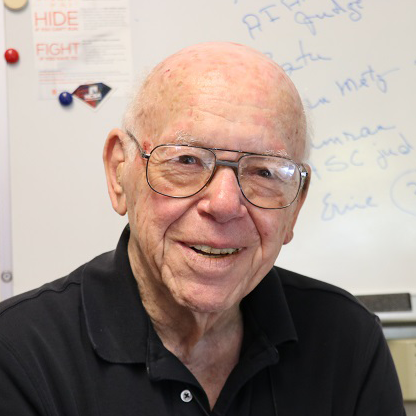
- DATE: May 4, 2016
- TO: Policy Committee
- FROM: Harry Hilton, UIUC AAUP Chapter President
- RE: President’s Monthly Report to Policy Committee (Apr 13 – May 4, 2016)
Removal from AAUP censure list and background checks: Bill Maher, USSP chair, presented at the May 2, 2016, UIUC Senate meeting the committee’s revised Statute amendments to codify proper hiring procedures. See SP.15.21 here.
The language contains provisions for delegation by BoT to the president and subsequently to the three chancellors of hiring approval of individuals below the rank of dean. Additionally it provides a prohibition against beginning duties prior to final appointment approval.
There were no modifications and our Senate approved it. Of course, in order to become operational these amendments must also receive approval of the other two Senates and of BoT.
David O’Brien and I are meeting with the Chancellor and Provost on May 6, to discuss what remains to be done to effect censure removal.
It is unclear at this time what are the details of UIUC background checks. David and I will seek clarifications during our 5/6/16 meeting.
Wozniak developments: Nothing new to report.
Steve Kaufman and censure: Nothing new to report
Tenure workshop: The provost, vice provost, John Prussing, Craig Koslofsky and Jim Inlay participated at the event on April 14, 2016. The workshop was well received by the 22 attendees not counting the panel, who indicated that the presentations were very helpful to them.
PC Meeting with President Killeen: Last month’s scheduled meeting had to be cancelled due to his meeting with the governor. I have been working on an alternate future date, which will have to be in the Fall according to his secretary.
Chapter Annual Meeting Speaker: Governor Jim Edgar has graciously accepted our invitation to speak on May 10. The open meeting will be held in 210 Illini Union (the General Lounge) 3 – 4:30 pm. He will speak on the budget mess in Springfield and its possible solutions. See attachment – please distribute among your contacts and collegues.
Ad Hoc Committee on Shared Governance: David O’Brien and I attended the April 28 meeting of the committee and its chair, Hadi Esfahani, will report.
Chapter Membership: The chapter membership has further declined into the 60s according to the latest national office figures. It is most imperative that we increase our efforts to recapture our past members who have lapsed in their dues and attract new members.
Unfortunately, the last of our faculty duty items, namely service, receives little attention and few rewards from administrators. The national trend in professional societies, other than those like the AAUP, is similar in decreasing memberships. Our younger colleagues are busy and hard driven to perform scholarly activities and consequently have little time or energies to support our goals. The AAUP has always treated, and rightly so, all injured faculty equally whether AAUP members or not.
However true the above, we must intensify our resolve and actively recruit new members. The chapter officers will redouble their efforts for new members at the tenure workshop and the annual open meeting with Governor Edgar (attached). Bill Williamson has prepared an excellent one page hand out (attached) to be used at these and future events.
NTFC Resolution: The resolution, drafted by Harry L., David O’B., Bruce R. and myself, was passed unanimously by the PC membership with two members not returning their ballot. I transmitted it to the president, chancellor, provost and the media.
Future Resolutions: The drafting of the NTFC resolution, passed by the Policy Committee by email ballot, required a great deal of correspondence and deprived the PC members of any opportunity for discussion. In the future, would members who wish to seek PC support please send draft resolutions to the Chapter Secretary so that they may be included with agenda mailings ahead of the PC meetings. Thank you.
Chapter Function and Purpose: Over many decades the UIUC chapter membership has been very successful in protecting individuals’ and the principles of academic freedom, shared governance, etc. The chapter has persistently been able to strongly influence campus and university academic and educational policies. Traditionally we do not make demands of or negotiate with the administration, but suggest, advise, formulate and protect policy and concepts as well as our academic colleagues.
This is essentially the model of the national AAUP, which has to under federal law separate the bargaining units from the chapters.